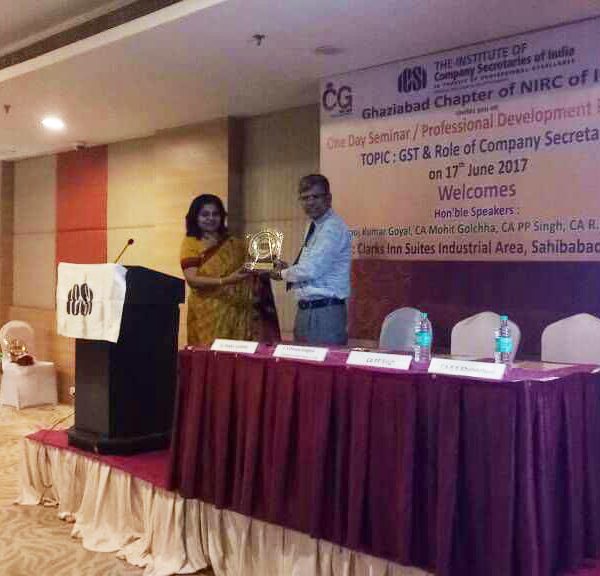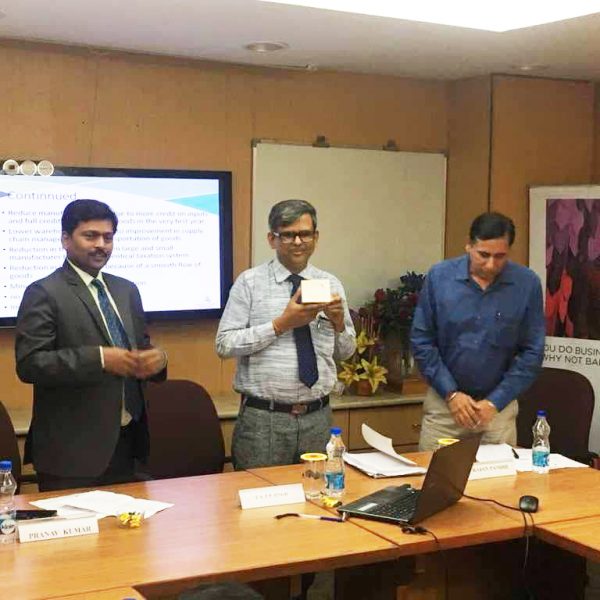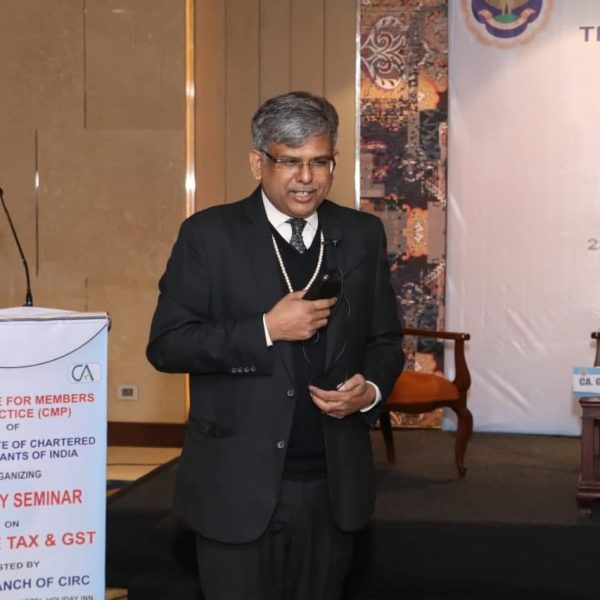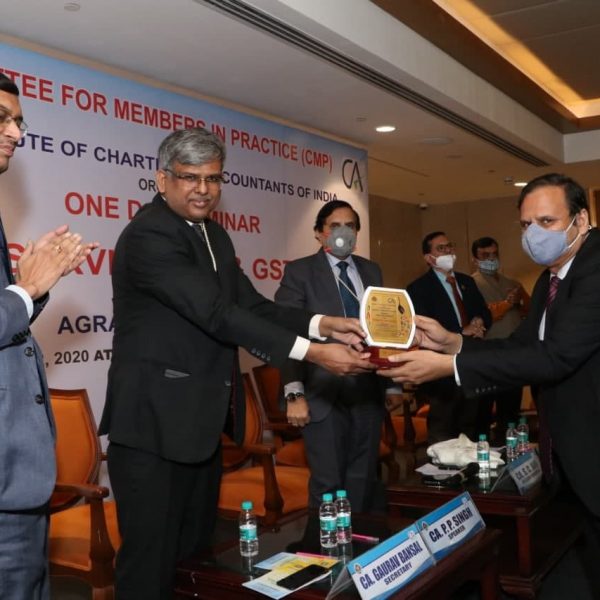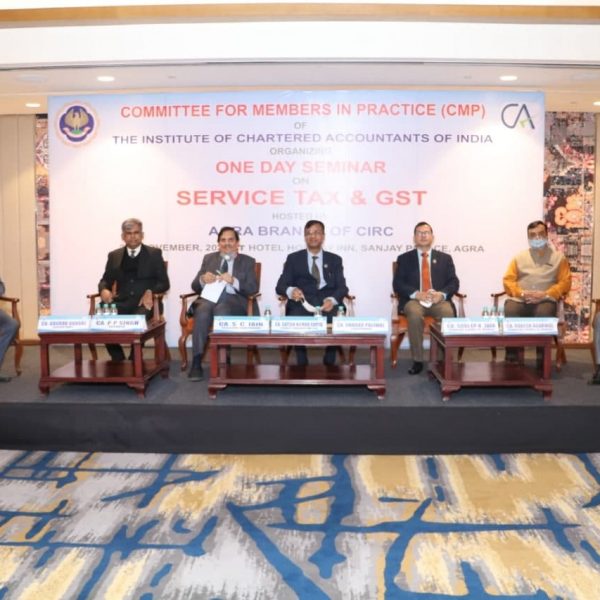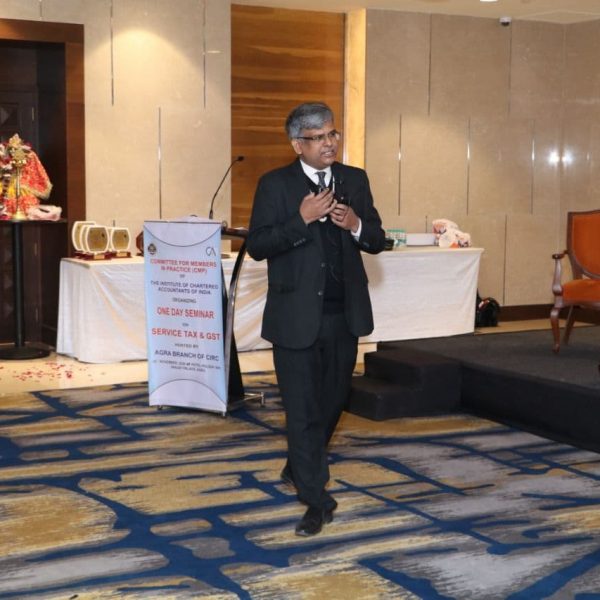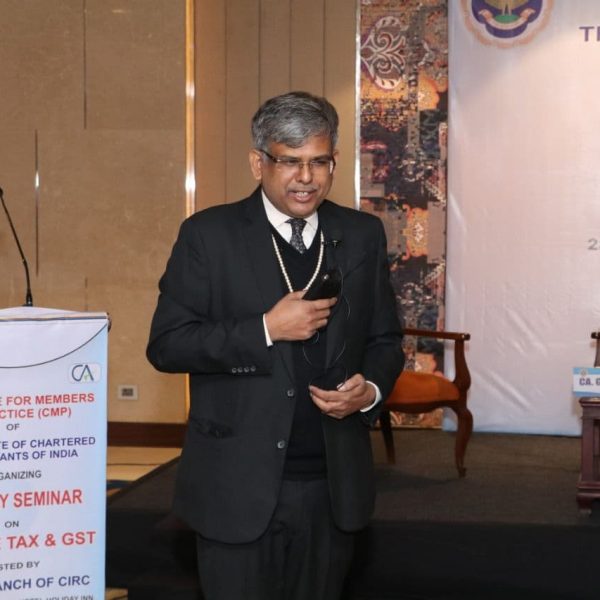Renting of immovable property and classification of supply
Introduction: Whether registration is mandatorily required in the state in which the premises let out is situated? Or registration could be obtained in different states and IGST could be charged on interstate supply of service of rent/lease rent.
Can the supplier charge IGST from the state in which he is already registered? Is he required to mandatorily obtain registration in the state in which immovable property is located? This analysis is an attempt to interpret the applicable legal provisions and clarify the same. It is a general presumption amongst taxpayers and professionals that in so far as the service by way of renting of immovable property goes, the location of the supplier as well as the place of supply will always be one and the same i.e., where the property is located. In respect of renting of immovable property, a taxable person i.e., a lessor, can supply the service at no other place than where the property itself is located. Thus, the place where the property is located is the location of supplier of service. In accordance with the provisions of Section 8(2) of the IGST Act, therefore, the supply of service by way of renting of immovable property under all circumstances will be an intra-state supply chargeable to CGST and SGST.
Section 22(1) of the CGST Act with respect to Registration – Every supplier shall be liable to be registered under this Act in the State or Union territory, from where he makes a taxable supply of goods or services or both, if his aggregate turnover in a financial year exceeds the threshold limits prescribed.
The phrase “from where he makes a taxable supply of goods or services or both” used in Section 22(1) of the CGST Act has been inserted by way of abundant caution by the legislature with the intention to guide the supplier as to in which state or union territory he has to take registration.
Interpretation of the phrase “from where” used in Section 22(1): these words must be interpreted to be the location of supplier or place of business where human resources are places for providing services, from where all or majority of the business decisions are being taken by the owner/ management, books of account kept and maintained . It refers to the place where the seat of management and control of the person who will decide the activity of supply of goods or services or both is located. The postulate follows Litera Legis that registration is required to be taken only at the place of business from where business is ordinarily carried upon.
Meaning of Location of supplier: section 2(71) of the CGST/SGST and section 2(15) of the IGST Act define the term location of supplier as under:
“location of the supplier of services” means,—
(a) where a supply is made from a place of business for which the registration has been obtained, the location of such place of business;
(b) where a supply is made from a place other than the place of business for which registration has been obtained (a fixed establishment elsewhere), the location of such fixed establishment;
(c) where a supply is made from more than one establishment, whether the place of business or fixed establishment, the location of the establishment most directly concerned with the provisions of the supply; and
(d) in absence of such places, the location of the usual place of residence of the supplier;
Place of business as per Section 2(85) of the CGST Act includes–
(a) a place from where the business is ordinarily carried on, and includes a warehouse, a godown or any other place where a taxable person stores his goods, supplies or receives goods or services or both; or
(b) a place where a taxable person maintains his books of account; or
(c) a place where a taxable person is engaged in business through an agent, by whatever name called;
Analysis of Clause (85) of section 2 of the CGST Act 2017 which uses the term “or” between the sub-clauses indicating that the place of business is indicated by the sub-clause which is most relevantly substantiated in terms of the facts of the case applicable to the taxable person.
It is a settled principle of jurisprudence that usage of the term “or” in the statute indicates independent disjunction between the clauses in the sub-section. Place of business in case of supply of services by way of renting of immovable property will be the place from where routine operational business and management decisions are taken. The conclusion is supported because of the usage of the words “from where the business is ordinarily carried on” in Section 2(85)(a).
Meaning of fixed place of establishment as per section 2(50) : Section 2(71)(b) presumes the pre-existence of a fixed establishment for determination of location of supplier of services. “Fixed Establishment” as per Section 2(50) of the CGST Act, 2017 means “ A place (other than the registered place of business) which is characterised by a sufficient degree of permanence and suitable structure in terms of human and technical resources to supply services, or to receive and use services for its own needs;
Registered place Vs. Fixed Establishment: Registered place of business and Fixed Establishment are two mutually exclusive concepts. Section usage the conjunctive word “and” in the definition.
Interpretation of conjunctive word “and” : The word ‘and’ signifies two forms or two words to be read together, in contrast to ‘or’ where of the two either of them can be used The word ‘and’ signifies conjunction and not disjunction. [(see Sahara India (Form) v. CIT (2008) 300 ITR 403 (SC)]. The word “and” has generally a cumulative sense requiring the fulfillment of all the conditions that it joins together, and herein it is the antithesis of ‘or’. In Rajasthan Textile Mills v. Union of India (2014) 46 GST 103; 46 taxmann.com 133 (Rajasthan), relying upon decision of the Supreme Court Babu Manmohan Das Shah v. Bishun Das [ AIR 1967 SC 643], regarding ‘or’ and ‘and’ used generally, it was held that the ordinary rule of construction is that a provision of a statute must be construed in accordance with the language used therein unless there are compelling reasons, such as, where a literal construction would reduce the provision to absurdity or prevent the manifest intention of the Legislature from being carried out.
it is clear that all of the stipulations specified in the definition are to be satisfied for invoking the definition of fixed establishment and in turn using the same under Section 2(71)(b) for determining the location of supplier of services. The concept of fixed establishment under the GST Law is a rule of substance satisfying all of the following conditions of the definition:
- Sufficient degree of permanence and
- Suitable structure in terms of human and technical resources and
- to Supply or receive services and use services for its own needs.
In any general case, with respect to supply of services by way of renting of immovable property, condition 1 and 3 of the stipulations of the definition will be satisfied with respect to sufficient degree of permanence and supply of services. Question still remains on whether condition 2 is generically satisfied for invoking the definition. Neither the CGST, SGST, IGST Acts nor the Rules provide any detailed guidance on what is the scope of the expression “human and technical resources.”
Interpretation:
As per section 8 of the central general clause act 1897 “Where this Act, or any Central Act or Regulation made after the commencement of this Act, repeals and re-enacts, with or without modification, any provision of a former enactment, then references in any other enactment or in any instrument to the provision so repealed shall, unless a different intention appears, be construed as references to the provision so re-enacted.”
Based on upon above rules of construction, Since the concept has been borrowed from the erstwhile service tax regulations, guidance from the same can be resorted to. Temporary presence of staff by way of a short visit at a place cannot be called a fixed establishment. Also, the number of staff at a location is not important. What is relevant is the adequacy of the arrangement (of human and technical resources) to carry out an activity for a consideration, or to receive and use a service supplied. Similarly, it will be important to evaluate the permanence of the arrangement i.e., whether it is capable of executing the task. Temporary visit of staff to a place shall not make it a fixed establishment. Also, number of staff members deployed is not a relevant parameter to ascertain the structure. Accordingly, where a supplier does not have any employee or personnel in the state in which immovable property is located, to attend to clients, maintain books, or any other related records, he fails to satisfy condition 2 and consequently fails to satisfy the entire definition since all the conditions have to be cumulatively be satisfied for invoking the definition as already enumerated above.
The following illustrations provided in the Service Tax Education Guide dated June 20, 2012 issued by the Central Board of Indirect Taxes and Customs (CBIC) provide guidance on what constitutes a fixed establishment. An overseas business house sets up offices with staff in India to provide services to Indian customers. Its fixed establishment is in India. A company with a business establishment abroad buys a property in India which it leases to a tenant. The property by itself does not create a fixed establishment. If the company sets up an office in India to carry on its business by managing the property, this will create a fixed establishment in India.
The Service tax education guide from CBIC clearly clarifies that a mere existence of a property does not create a fixed establishment in any manner. What constitutes a fixed establishment is any other administrative office which has been set up for the purpose of management of the properties leased to the tenants. In the absence of any such offices set up in the state in which the immovable property is located, the standalone immovable property leased to tenants can in no way constitute a fixed establishment. Under the Service Tax Law, the concept of Fixed Establishment sought to protect the Country’s tax base in a cross-border setting. In the GST regime the same concept has been deployed to safeguard the destination State’s right to collect GST. However, the destination state cannot assume extra territorial jurisdiction for levy.
With the intentions of the fiscal statutes remaining the same, the interpretations and legal conclusions derived from the erstwhile service tax regime are squarely applicable as an external aid to interpretation in the instant case.
Accordingly, when the definition of fixed establishment itself is not met for the aforementioned reasons enumerated, recourse to sub clause (b) of clause (71) of Section 2 cannot be resorted to in any manner. When the invocation of Section 2(71)(b) is outrightly ruled out, for reasons stated above, supply by way of renting of immovable property is covered by sub-clause (a) of clause (71) of section 2 of the CGST Act, 2017, i.e., location of supplier is the place of business for which registration has been obtained.
Location of supplier shall be the place of registration.
place of supply in case of renting of immovable property. Section 12(3) of the IGST Act: – The place of supply of services,-
(a) directly in relation to an immovable property, including services provided by architects, interior decorators, surveyors, engineers and other related experts or estate agents, any service provided by way of grant of rights to use immovable property or for carrying out or co-ordination of construction work; or
(b) by way of lodging accommodation by a hotel, inn, guest house, home stay, club or campsite, by whatever name called, and including a house boat or any other vessel; or (c) by way of accommodation in any immovable property for organising any marriage or reception or matters related thereto, official, social, cultural, religious or business function including services provided in relation to such function at such property; or
(d) any services ancillary to the services referred to in clauses (a), (b) and (c), shall be the location at which the immovable property or boat or vessel, as the case may be, is located or intended to be located. Place of supply for renting of immovable property in terms of Section 12(3) of the IGST Act, 2017 accordingly is the location of the immovable property.
Place of business and place of supply cannot be understood synonymously. The place of supply of services will not determine the requirements of taking registration in a particular state, requirement of registration must be in accordance with Section 22(1) of the CGST Act or Section 22(1) of the SGST Act.
Nature of supply: for determining the nature of supply, whether it is interstate supply as per Section 7 or intra-state supply as per Section 8 of the IGST Act 2017. To qualify as an inter-state supply in terms of Section 7(3) of the IGST Act, 2017, the location of the supplier and the place of supply must be in two different states. Section 7(3) of the IGST Act – Subject to the provisions of section 12, supply of services, where the location of the supplier and the place of supply are in- (a) two different States; (b) two different Union territories; or (c) a State and a Union territory, shall be treated as a supply of services in the course of inter-State trade or commerce.
interpretation is Revenue neutral: since GST is a destination based consumption tax, the state in which let out premises is located get share in IGST equivalent to SGST there is no loss to the state where let out premises is located because registration in other state do not entitle to retain state share of GST by the origin state. In other words through IGST mechanism state having location of let out premises get his share of GST revenue.
Thus, it can be suitably concluded that there is no requirement to obtain registration in the state in which the immovable property is located. With that being the case, the conclusion follows that the supplier has to raise an invoice from a different state in which he is registered to the recipient located in the state in which the immovable property is located, necessitating the charge of IGST.
Conclusion: Based on the above discussion and explanations safely we can safely conclude that in the case of renting of immovable property, if the location of the supplier and the place of supply are in two different states, it will be a case of interstate supply and accordingly IGST has to be charged in line with Section 7(3) of the IGST Act, 2017. Hence, there is no legal requirement for a registered person to obtain registration in each and every state for letting out immovable properties. It would be sufficient compliance if he charges IGST from the place of business for which he has already obtained registration.

